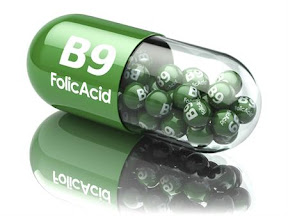Causes
Doctors are not certain what causes spina bifida. It is thought to result from a combination of genetic, nutritional, and environmental risk factors, such as a family history of neural tube defects and folate (vitamin B-9) deficiency.
Risk factors
Spina bifida is more common among whites and Hispanics, and females are affected more often than males. Although doctors and researchers don't know for sure why spina bifida occurs, they have identifies some risk factors:
- Folate deficiency: Folate, the natural form of vitamin B-9, is important to the development of a healthy baby. The synthetic form, found in supplements and fortified foods, is folic acid. Folate deficiency increases the risk of spina bifida and other neural tube defects.
- Family history of neural tube defects: Couples who have had one child with a neural tube defect have a slightly higher chance of having another baby with the same defect. That risk increases if two previous children have been affected by the condition. In addition, a woman who was born with a neural tube defect has a greater chance of giving birth to a child with spina bifida. However, most babies with spina bifida are born to parents with no known family history of the condition.
- Some medications: For example, anti-seizure medications, such as valproic acid (Depakene), seem to cause neural tube defects when taken during pregnancy. This might happen because they interfere with the body's ability to use folate and folic acid.
- Diabetes: Women with diabetes who don't have well-controlled blood sugar have a higher risk of having a baby with spina bifida.
- Obesity: Pre-pregnancy obesity is associated with an increased risk of neural tube birth defects, including spina bifida.
- Increased body temperature: Some evidence suggests that increased body temperature (hyperthermia) in the early weeks of pregnancy increased the risk of spina bifida. Elevating your core body temperature, due to fever or using a sauna or hot tub, has been associated with possible slightly increased risk of spina bifida.
- If you have known risk factors for spina bifida, talk with your doctor to determine if you need a larger dose or prescription dose of folic acid, even before a pregnancy begins.
- If you take medications, tell your doctor.
- If you plan ahead, some medications can be adjusted to diminish the potential risk of spina bifida.
Prevention
Folic acid, taken in supplement form starting at least one month before conception and continuing through the first trimester of pregnancy, greatly reduce the risk of spina bifida and other neural tube defects. Get folic acid first
Having enough folic acid in your system by the early weeks of pregnancy is critical to prevent spina bifida. Because many women don't discover that they are pregnant until this time, experts recommend that all women of childbearing age take a daily supplement of 400 micrograms (mcg) of folic acid.
Several foods are fortified with 400 mcg of folic acid per serving, including:
- Enriched bread
- Pasta
- Rice
- Some breakfast cereals
Folic acid may be listed on food packages as folate,which is the natural form of folic acid found in foods.
Planing pregnancy
Adult women who are planing pregnacy or who could become prgang should be advised to get 400 to 800 mcg of folic acid a day.
Your body does not absorb folate as easily as it absorbs synthtic folic acid, and most people dont get the recommened amount of folate throgh the diet alone, so vitamin supplements are necessary to prevent spina bifida. And it is possible that folic acid will also help reduce other birth defects, including cleftlip,cleft palate and some congentital heart defects.
It is also good idea to eat a heakthy dieat, includign foods rich in folate or enriched with folic acid. This vitamins is present naturally in many foods, including:
- Beans and peas
- Citrus fruits and juices
- Eggs yolks
- Milk
- Avocados
- Dark green vegetetables, such as broccoli and spinach.
 |
| Group of foods rich in vitamin B9 |
When higher doses are needed
- If you have spina bifida or if you have previsouly given birth to a child with spina bifida, you will need extra folic acid before you become pregnant.
- If you are taking anti-seizure drug or you have diabetes, you may aslo benefit from a higher dose of this B vitamin.
- Check with your doctor beofre taking additional folic acid supplements.






Comments
Post a Comment